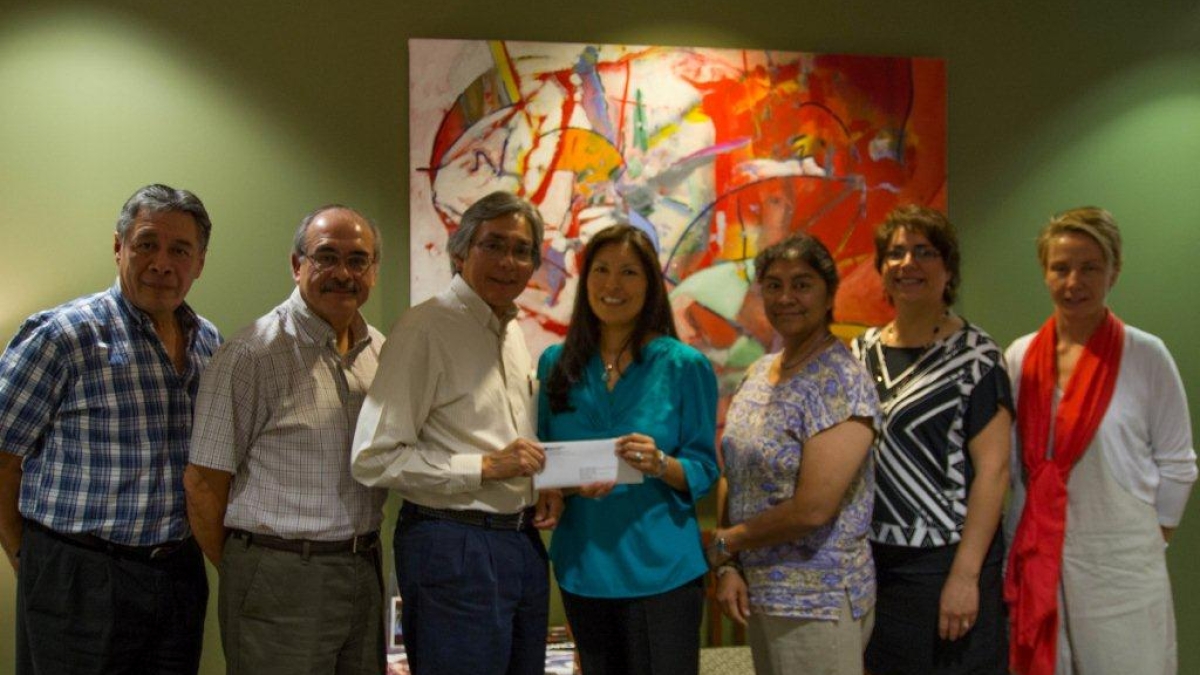Gift to ASU will aid American Indian retention efforts

Attending college and earning a degree is a distant dream for many American Indians.
A gift of $35,000 from Freeport McMoRan to Arizona State University will help ensure that more students attain their goals of earning a higher education degree by funding American Indian retention efforts.
Arizona is a state that is rich in Indian tribal communities with 22 federally recognized tribes whose land makes up one-quarter of the state’s land mass. ASU is working collaboratively with these federally recognized tribes to strengthen the education pipeline from Native communities to ASU.
“Freeport McMoRan’s generous gift will help ASU deliver meaningful support services to its ever-increasing American Indian student population who are enrolled members of these tribes," said Diane Humetewa, special advisor to ASU President Michael Crow on American Indian Affairs. "This gift will help these students make a successful transition into the rigors of the university curriculum and the later employment challenges that lie ahead. We are extremely grateful for Freeport McMoRan for its support.”
ASU has one of the largest American Indian student populations in the nation. In the 2012 spring semester, approximately 1,400 American Indian students from the Navajo Nation, Tohono O’odham Nation, San Carlos Apache Indian Tribe, Hopi and other federally recognized tribes located within Arizona and other states throughout our nation enrolled at ASU. ASU ranks first in the nation for doctoral degrees awarded to American Indians.
ASU is working to ensure that students who come to the university complete their degrees. First-year retention rates among Native Americans average about 69 percent. Students cite a multitude of reasons why completing their studies is challenging, including finances and cultural differences.
“If you’re coming from a small tribal community into a large urban environment, you’re likely trying to figure out your day-to-day living situation, and manage finances, while at the same time trying to excel academically," Humetewa said. "It can, at times, be overwhelming. ASU can provide resources to get through that first semester.”
ASU is spearheading creative initiatives to provide incoming students with a holistic approach to complete their degrees with programs designed to enhance social, cultural and academic integration. The gift from Freeport-McMoRan will support these programs and initiatives to boost American Indian student success at ASU.
“This gift represents Freeport McMoRan’s commitment to the success of Native American students," said Delia S. Saenz, Vice Provost for International & Institutional Inclusion. "The funds will provide multi-year support for programs that promote retention, success and graduation for enrolled members of federally recognized tribes. We are grateful to have Freeport McMoRan as a partner in educational excellence.”
Funds from the gift will be eligible to support programs and initiatives, such as an accredited course that will build writing, reading and response skills; undergraduate tutorial services; and college and career readiness activities that will ease the cultural transition to the university, especially for first-generation American Indian college students from reservation communities.
Other programs that are eligible for funds include an elective course to help students overcome cultural challenges often faced when applying studies to a work environment. The course emphasizes professional and leadership skills while exploring indigenous and non-indigenous perspectives on communication, research, and professional and leadership skills.
In addition, the ASU Summer Bridge Program ensures that students make a successful transition to the university by emphasizing involvement, inclusion and identification with the ASU campus and community. Sixty American Indian students experience a four-day ASU residential orientation that includes one-on-one meetings with academic advisors, faculty and staff; class registration and advisement; culturally specific workshops and presentations; leadership development; and academic and social integration.
A similar program, the Native American Summer Institute, has run for the past 12 years and has served more than 750 students with great success. Current ASU data show that students who attend the institute are retained at much higher rates.